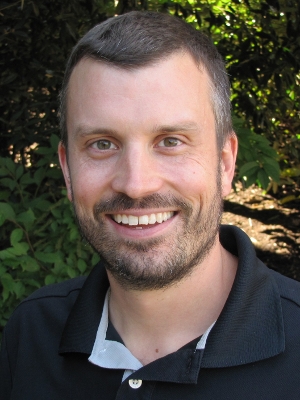Past NIMBioS Postdoctoral Fellow
Matt Zefferman
 Dates: September 2013 – October 2015
Dates: September 2013 – October 2015
Personal Website
Project Title: The evolutionary origins of complex institutions
Matt Zefferman (Ph.D. Ecology, Univ. of California, Davis, 2013) uses analytical and computational models to investigate the origins of complex political and economic institutions.
Upon completing his fellowship at NIMBioS, Dr. Zefferman accepted a postdoctoral fellowship at the School of Human Evolution and Social Change at Arizona State University.
LiveScience Profile Q&A with Dr. Zefferman: Using math to understand the puzzle of humanity
![]() NIMBioS Seminar: Cultural evolution of human cooperation and conflict
NIMBioS Seminar: Cultural evolution of human cooperation and conflict
Video Interview:
The origins of political institutions
Publications while at NIMBioS
Zefferman MR. 2017. Cultural multilevel selection suggests neither large or small cooperative agreements are likely to solve climate change without changing the game. Special Feature: Original Article Applying Cultural Evolution to Sustainability Challenges. Sustainability Science. doi.org/10.1007/s11625-017-0488-3 [Online]
Zefferman MR, Mathew S. 2015. A theory of human warfare: group-structured cultural selection. Evolutionary Anthropology, 24(2): 50-56. [Online]
Zefferman M, Mathew S. 2015. An evolutionary theory of large-scale human warfare: Group-structured cultural selection. Anthropology, 24(2): 50-61. [Online]
Zefferman MR. 2014. Direct reciprocity under uncertainty does not explain one-shot cooperation, but demonstrates the benefits of a norm psychology. Evolution and Human Behavior 35(5):358-367. [Online]
NIMBioS
1122 Volunteer Blvd., Suite 106
University of Tennessee
Knoxville,
TN 37996-3410
PH: (865) 974-9334
FAX: (865) 974-9461
Contact NIMBioS


